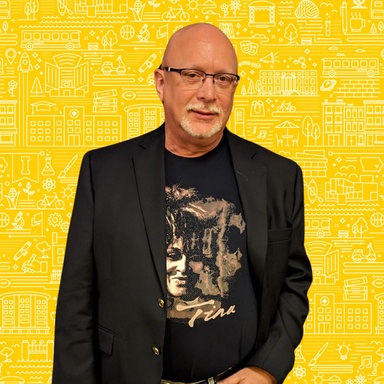Dave Haden, Dean of Students, Southeastern Community College

1. Please describe your role on campus.
I’m the Dean of Students at Southeastern Community College (SCC). I have a range of responsibilities to serve and support our students and the SCC community. Among my responsibilities are coordinating the CARE Team, meeting with students for any number of concerns, referring students to on- and off-campus resources, student conduct, serving as our Title IX Coordinator, and leading our Title IX Team. I am responsible for various compliance responsibilities (Clery, Title IX, Anti-Hazing, Drug-Free Schools & Campuses Acts), supervising our director of accessibility services and director of student activities, managing our student complaint and grievance process, and serving as our Maxient database administrator.
2. How do you lead and interface with mental health and well-being on your campus?
We don’t have a counseling center on campus. SCC has a contract with Uwill to provide therapy sessions for our students over the phone or via video chat. I am our liaison to Uwill. I work with Uwill to address concerns and to develop marketing plans. I also maintain a relationship with the Community Health Centers of Southeast Iowa (CHC/SEIA). Since many of our students are unable to afford other providers, and the CHC/SEIA has a facility adjacent to our West Burlington campus and near our Keokuk campus, I refer students who need to see someone in person to the Behavioral Health team. Whenever someone on campus is concerned about a student’s mental wellbeing, they refer that student to me so that I can speak with the student and determine what their needs might be.
3. Would you share a story where you were concerned about something or someone, and the steps you took that either helped and/or left you perhaps considering how you would do it differently next time? Both types of stories are helpful!
I am concerned because we don’t have a counseling center, so our institution lacks the mental health expertise that would be helpful when assessing a student’s wellbeing, and determining how best to help them. That feels risky and constraining. I confer with members of our CARE Team, and other staff and faculty who are familiar with the student, to hopefully make the best-informed decision for that student and the campus community. Prior to coming to SCC five years ago, I had always worked at institutions with counseling centers. I am accustomed to someone from the counseling center sitting on our CARE Teams. Learning to walk that tightrope without a net has been a culture shock for me.
4. Could you tell us about one high point in your work and about one low point in your work?
- A high point has been that local care providers have been receptive to coming to campus to assist our students whenever I have reached out to say that we have experienced a crisis. Their willingness to immediately change their schedules and donate their time to assist our students has been incredible.
- A low point is that I don’t have a method of checking to see whether someone is actually engaging in counseling when I refer them to Uwill or a community resource. It feels uncomfortable to refer someone to counseling, but be uncertain whether they are following through.
5. Is there something which you would like to normalize for others, where they may think they cannot share it or think it is only their struggle (e.g., we are often called upon to be experts on things we often know little about such as budgeting, managing personnel tensions, speaking to the press, being experts on EVERYTHING in our content areas, and so on)?
This isn’t the audience who needs to hear the message, but something has been frustrating me recently. I want staff and faculty to know it is okay to ask students questions. It is frustrating – and frightening – to learn about a student who someone knows to be in pain, but the person didn’t gather basic and necessary information as they were afraid to ask questions. I coach and role model, but it is difficult to get people to feel comfortable asking questions or believe it is appropriate to ask questions if they deem them to be intrusive or personal.
3 Self-Care Strategies Dave Swears By
- Self-care is probably one of my strengths! However, I do try to really disengage from work when I am at home.
- Also, playing with my cats (Sherbet and Caspian) really helps with my own mental health.
- Finally, cranking up either disco or ‘80’s R&B/Soul music in the morning while I am preparing for work helps to put me in the right state of mind to tackle the challenges that might be ahead at work. Although my cats don’t share my musical tastes!